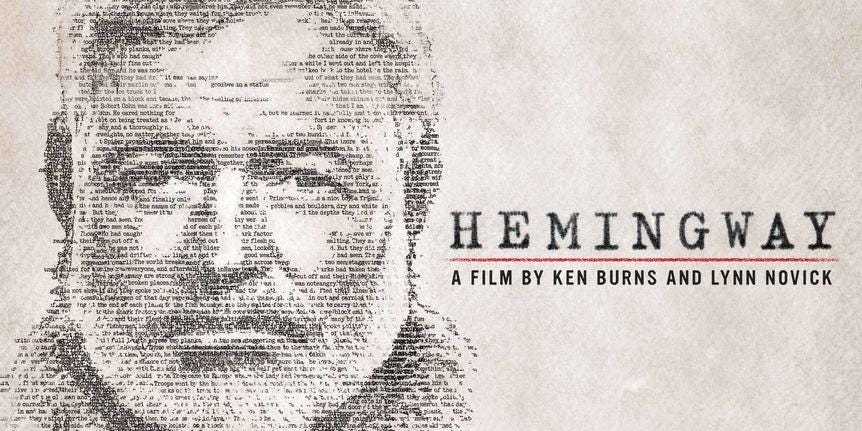What more can be said about Ken Burns’ documentary style? It’s good. It works. It’s so recognizable that his signature zooms and pans over photographs have been forever memorialized as “the Ken Burns effect” in video editing. And so it should be no surprise that in the PBS documentary Hemingway, Burns and long-time collaborator Lynn Novick have assembled yet another fascinating and accessible bit of documentary work.
The three-part, six-hour documentary tracks the life of Ernest Hemingway from birth until his tragic death. Burns employs all his typical tricks, with mood-setting music, old photography, and interviews. He and Novick peel back the layers of one of America’s most celebrated writers, a man whose true self was obscured over the years by the legends that built up around him. Strip away the legend—much of which Hemingway created himself through what would politely be described as “stretching the truth” and more accurately described as “lying”—and we get something quite interesting: a prodigious jerk who was just as innovative in his writing as he was at finding ways to hurt those around him.
Whatever can be said about a man who cheated his way through four marriages, covered up Soviet-ordered torture and executions in the Spanish Civil War, and insulted friends through thinly veiled demeaning characters in his writing—and there are many things that can be said—such a man does, at the very least, make for an interesting documentary subject. Hemingway’s life is rife with fascinating material that Burns and Novick explore in great detail: his artistic mother who raised Hemingway and his sister as androgynous twins; his first romance, with a nurse he met while hospitalized for injuries sustained in World War I; his war correspondence; his globetrotting to exotic locales. It’s all deeply interesting, often exciting, and even more often sad or infuriating.
To explore Hemingway’s life and impact even beyond what firsthand documentation tells us, Burns and Novick bring in a variety of interview subjects. Fellow writers talk about how he affected their craft, academics break down how his life seeped into his work, Hemingway’s own son Patrick gives some insight into his father’s life, and the late Sen. John McCain even makes an appearance to discuss his love of For Whom the Bell Tolls. McCain’s isn’t the only voice viewers may recognize, as voiceovers for Hemingway and others are performed by Jeff Daniels, Meryl Streep, Mary-Louise Parker, Patricia Clarkson, and Keri Russell. Such voiceovers humanize the words we hear a bit, making them feel more personal than what could be done by a narrator.
Burns and Novick have created something here that feels worth the six-hour investment. Hemingway is interesting, it’s colorful, it’s educational. And perhaps above all, it’s cautionary. There’s a temptation with larger-than-life figures to excuse immorality as the price to pay for genius, as though great men are allowed to play by a different set of moral rules because of their contributions to society. Kudos to the Hemingway team for not falling into that trap; for showing how tall a price that was for those around him and for presenting Hemingway as he truly was: brilliant, certainly, but not a man worth admiring.
Correction, April 11: This article originally omitted that Lynn Novick was the co-author, co-creator, and co-director of the film.









Please note that we at The Dispatch hold ourselves, our work, and our commenters to a higher standard than other places on the internet. We welcome comments that foster genuine debate or discussion—including comments critical of us or our work—but responses that include ad hominem attacks on fellow Dispatch members or are intended to stoke fear and anger may be moderated.